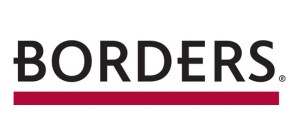
Book retailer Borders has filed for Chapter 11 bankruptcy protection and plans to close as many as 30 percent of its “underperforming” stores in the next several weeks—which adds up to about 200 retail locations. Borders says it has acquired over $500 million of “debtor-in-possession” financing led by GE Capital to help the company restructure its business into a viable long-term venture…but, in the meantime, the company says it has assets of about $1.3 billion along with about the equivalent amount of debt.
“Borders Group does not have the capital resources it needs to be a viable competitor and which are essential for it to move forward with its business strategy to reposition itself successfully for the long term,” said Borders Group president Mike Edwards, in a statement. “This decisive action will give Borders the opportunity to achieve a proper infusion of capital in order to have the opportunity to have the time to reorganize in order to reposition itself to be a successful business.”
Borders has been struggling for some time, and the move has been widely anticipated in the publishing and bookselling industries. At the heard of Borders’ financial woes are debts owed to publishers, with the Wall Street Journal reporting (subscription required) that the company’s five largest unsecured creditors are all major publishers, including Penguin Putman, Hachette, Simon & Schuster, Random House, and HarperCollins. The bankruptcy declaration enables Borders to dodge a significant amount of that debt as they compete with other creditors for repayment from the company, and likely see sales through Borders decline as the company shutters stores. The company says it expects to continue being able to make salary and benefits payments for its employees, and all gift cards and other customer programs will be honored.
Borders says it will continue operations as normal, but will be implementing a Strategic Store Reduction Program that will see about 30 percent of its retail locations closed in the next several weeks. Borders says it intends to close “underperforming” locations—and a 30 percent reduction equates to about 200 stores. Remaining stores will continue operating as normal, as will Borders.com.
Over the years, pundits have been predicting the end of the traditional bookstore, first due to competition from the likes of Amazon.com, which has succeeded in driving many mom-and-pop and local bookstores into the ground through the convenience of online ordering and prices small booksellers just can’t match. More recently, booksellers have been threatened as readers increasingly turn to ebooks, enabled by the likes of the Amazon Kindle, Barnes & Noble Nook, Apple iPad, and Sony Reader. Borders’ bankruptcy is another indication of the shifts in the broader publishing word: now, not even megastores are immune from the economic realities of book retailing.


